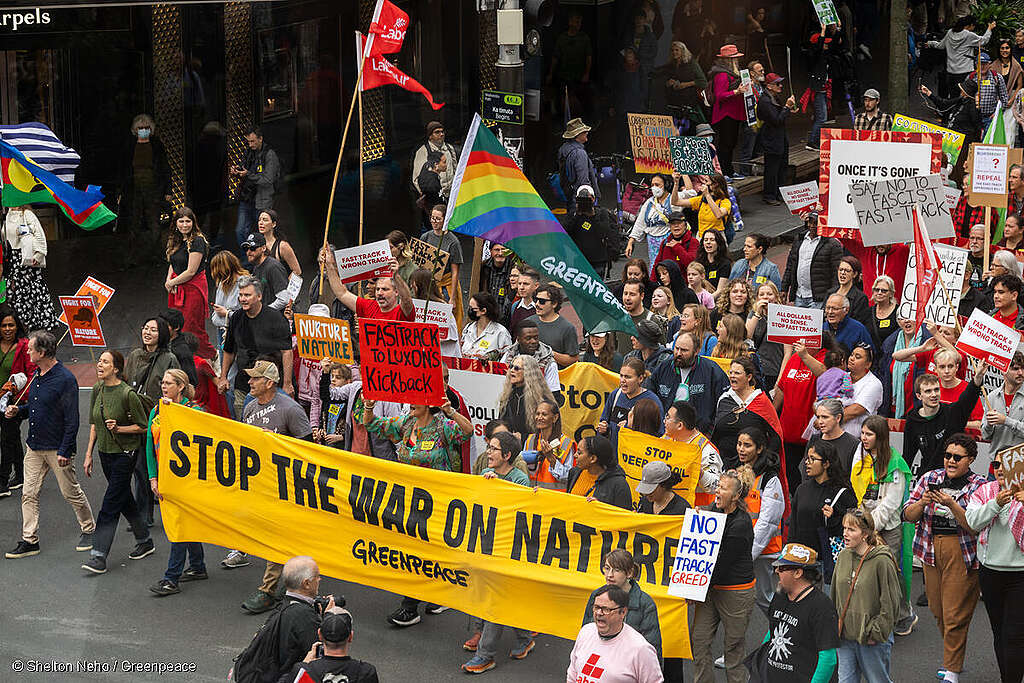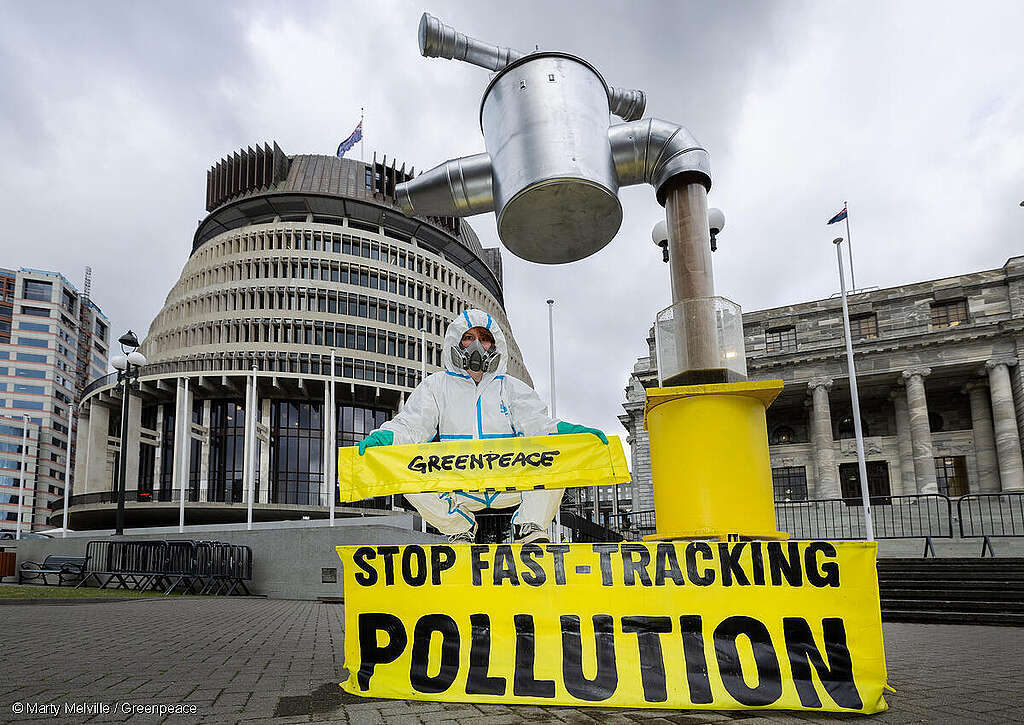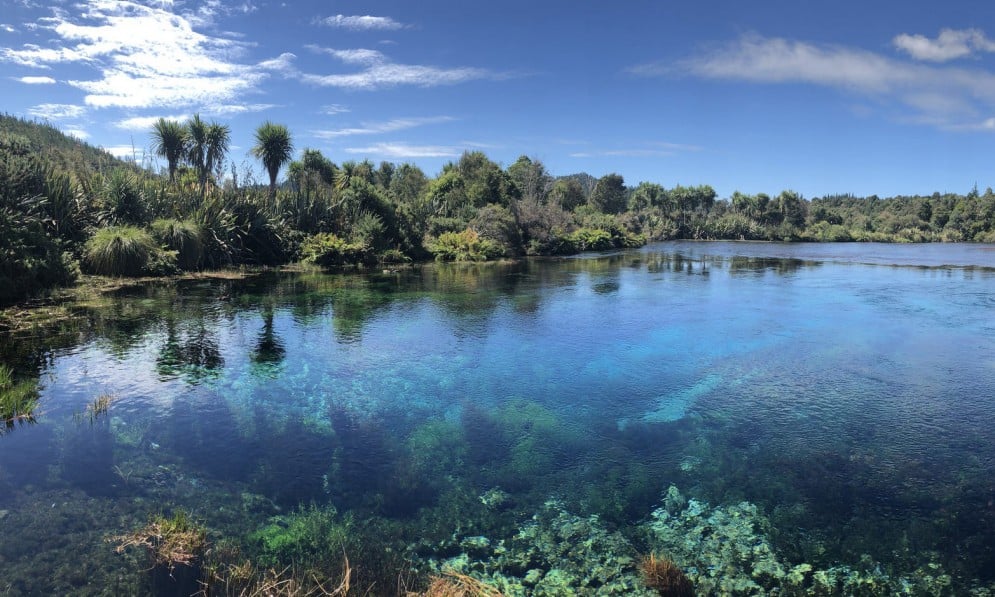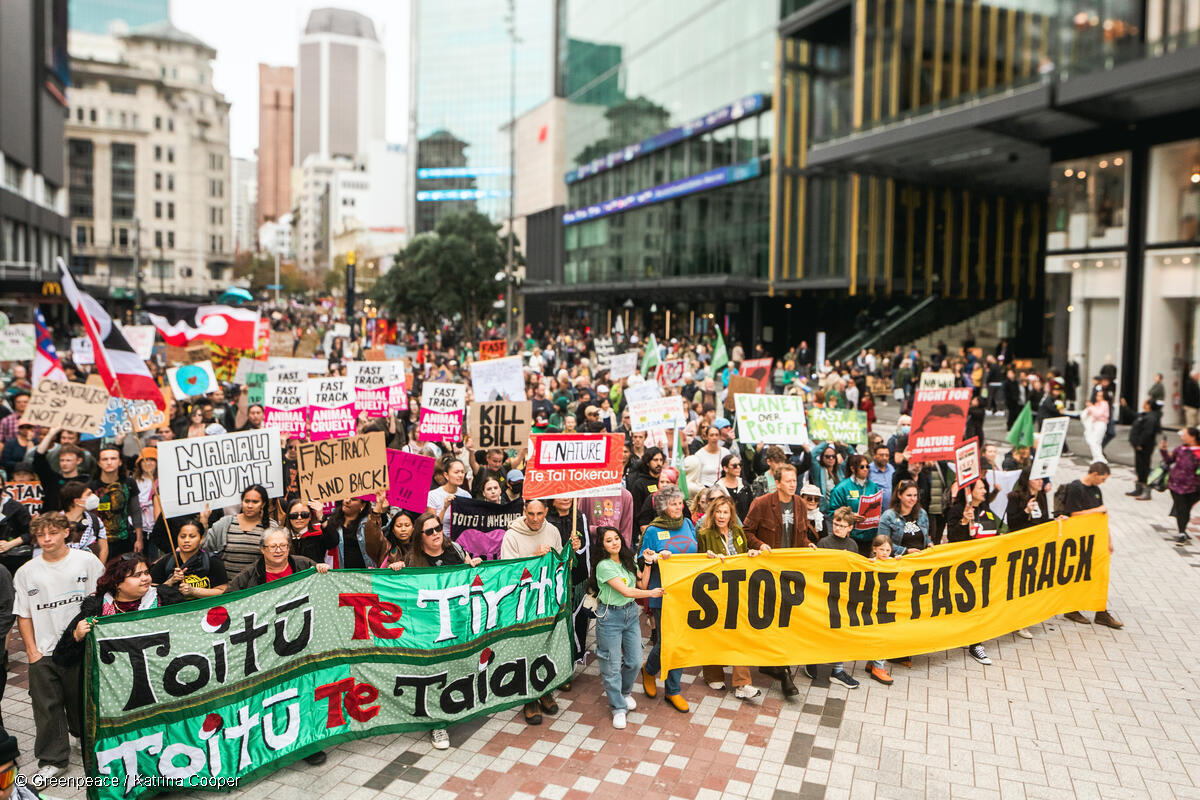The Luxon Government introduced the so-called Fast Track Approvals Bill in March, and it is a wrecking ball in his Government’s War on Nature.
Its aim is to fast-track consents for development projects, allowing developers to bypass environmental protections and democratic scrutiny.
Instead of a transparent process, the Fast-Track Approvals Bill gives just one minister, Infrastructure Minister Chris Bishop, oversight of a hand-picked ‘expert panel’ with the power to give the thumbs up to development projects without having to go through the usual checks and balances that protect the environment.
The Fast Track Bill highlights the Luxon government’s desire to plough, plunder and pollute whole swathes of Aotearoa without any public consultation, ignoring the wishes of local communities, hapū and iwi, and evidence from scientific experts.
In April, the Government invited about two hundred companies to apply through the Fast Track process.

Those companies include the dairy giant Fonterra, the notorious fishing company Talley’s, and wannabe seabed miners Trans-Tasman Resources.
Trans-Tasman Resources were invited despite repeatedly losing their application to mine the seabed off the coast of Taranaki. Trans-Tasman Resources has faced massive widespread opposition from iwi and hapū, environmental experts, community groups, surfers, the fishing industry, and the local council. The fast-track process enables it to ignore their wishes.
The opposition to Trans-Tasman Resources also includes a group of offshore wind developers. They’ve warned the Government that if seabed mining is given the green light, it would kill New Zealand’s chance to embrace offshore wind energy.
The fast-track process is also wide open to corruption. Already Shane Jones has been caught out. First having to recuse himself from decisions around seabed mining because of a conflict of interest with the fishing industry, and then outed for having an undeclared dinner with mining industry business operators.
The chair of the Environment Select Committee, which is hearing the submissions of tens of thousands of people on the Fast Track Bill, has been stripped of his role. It followed his failure to declare donations to his election campaign, including from a businessman who has a stake in the company which owns Trans-Tasman Resources.
Opposition to the fast track bill is strong and widespread. Nearly 50,000 people made submissions and opposition is coming from across the board.
From voices like the Parliamentary Commissioner for the Environment, Treasury, the Auditor General, iwi and a wide range of environment and community groups.




